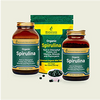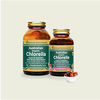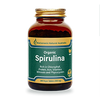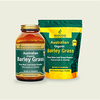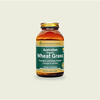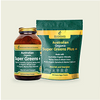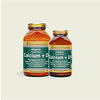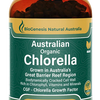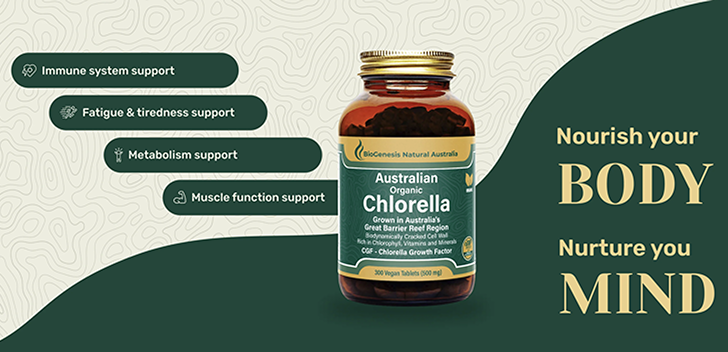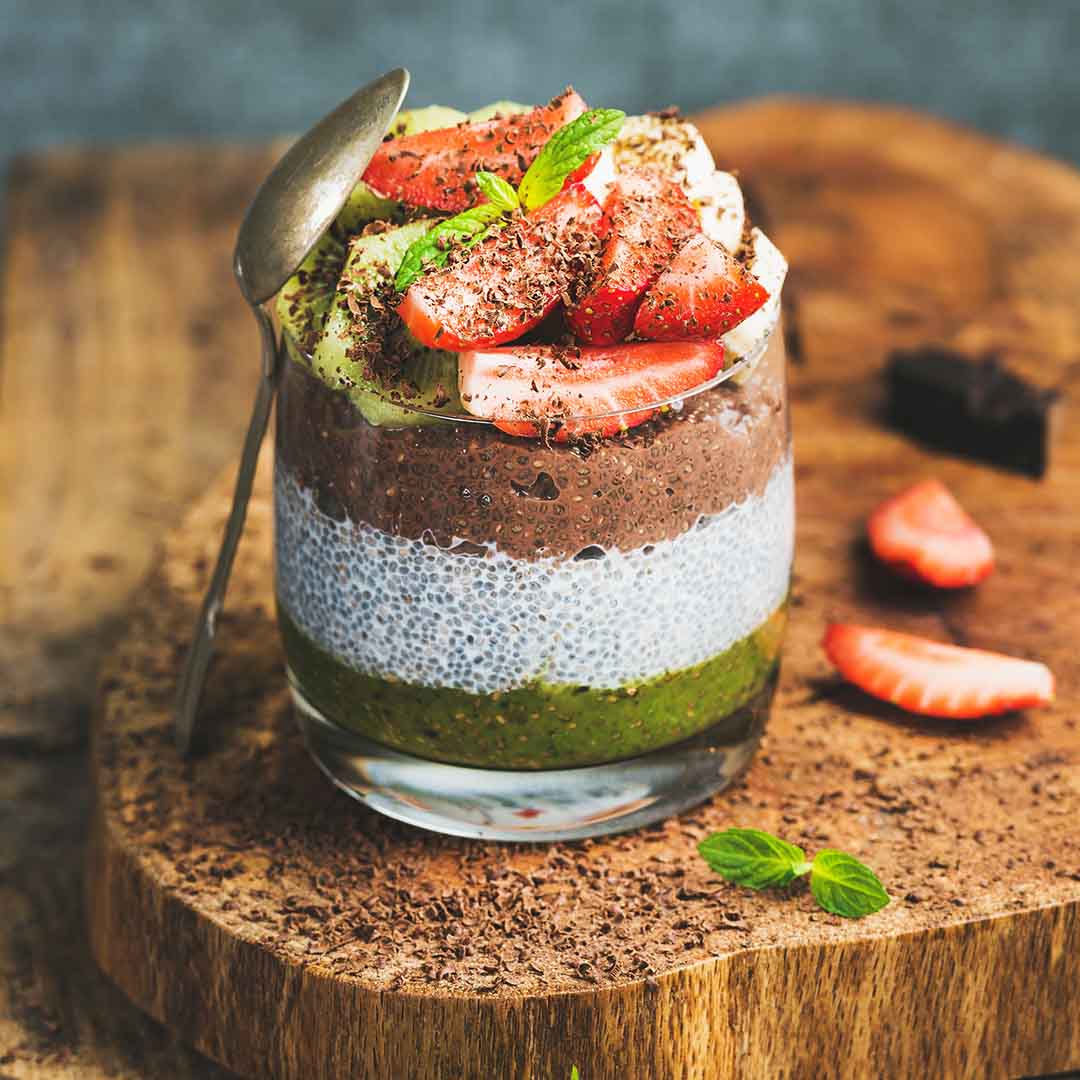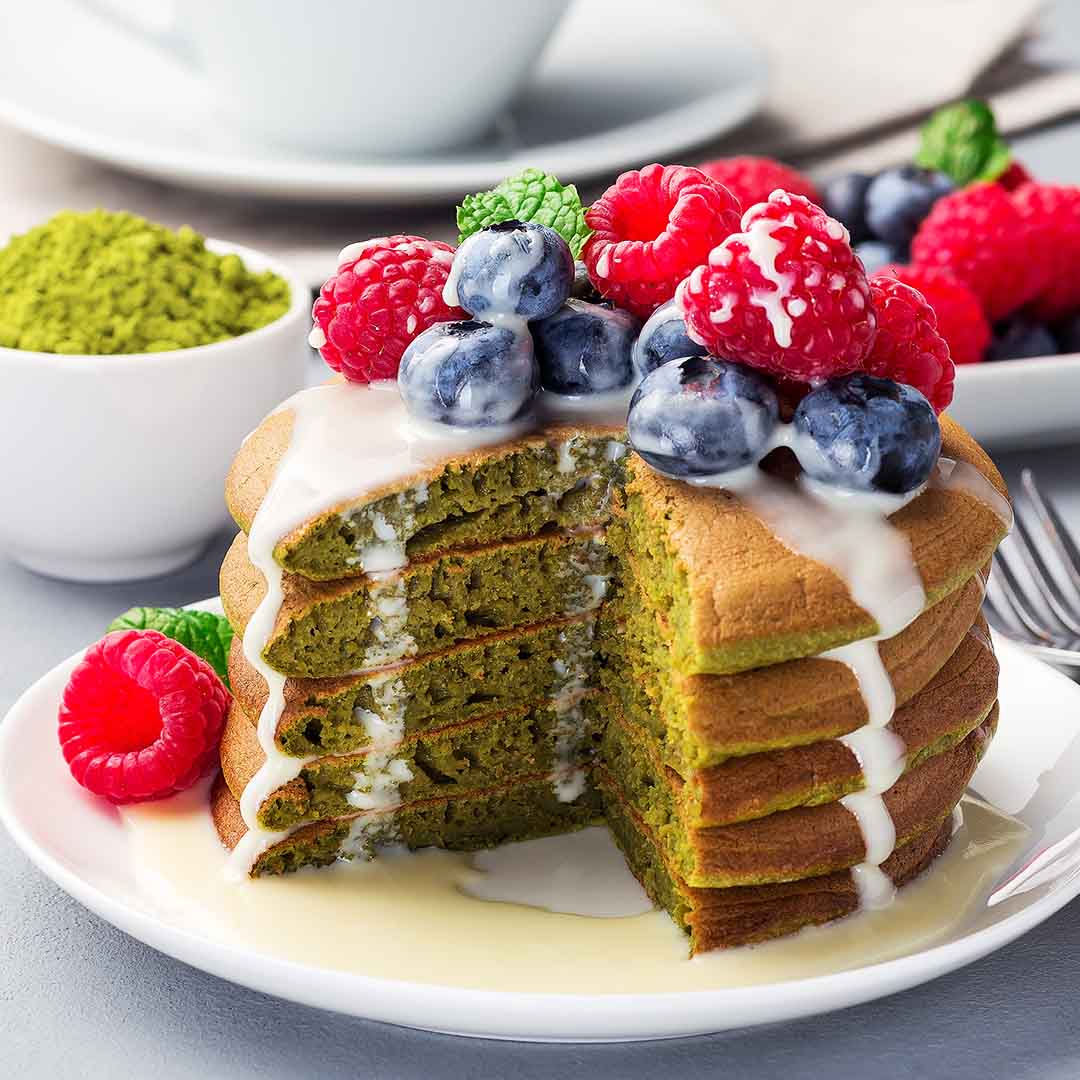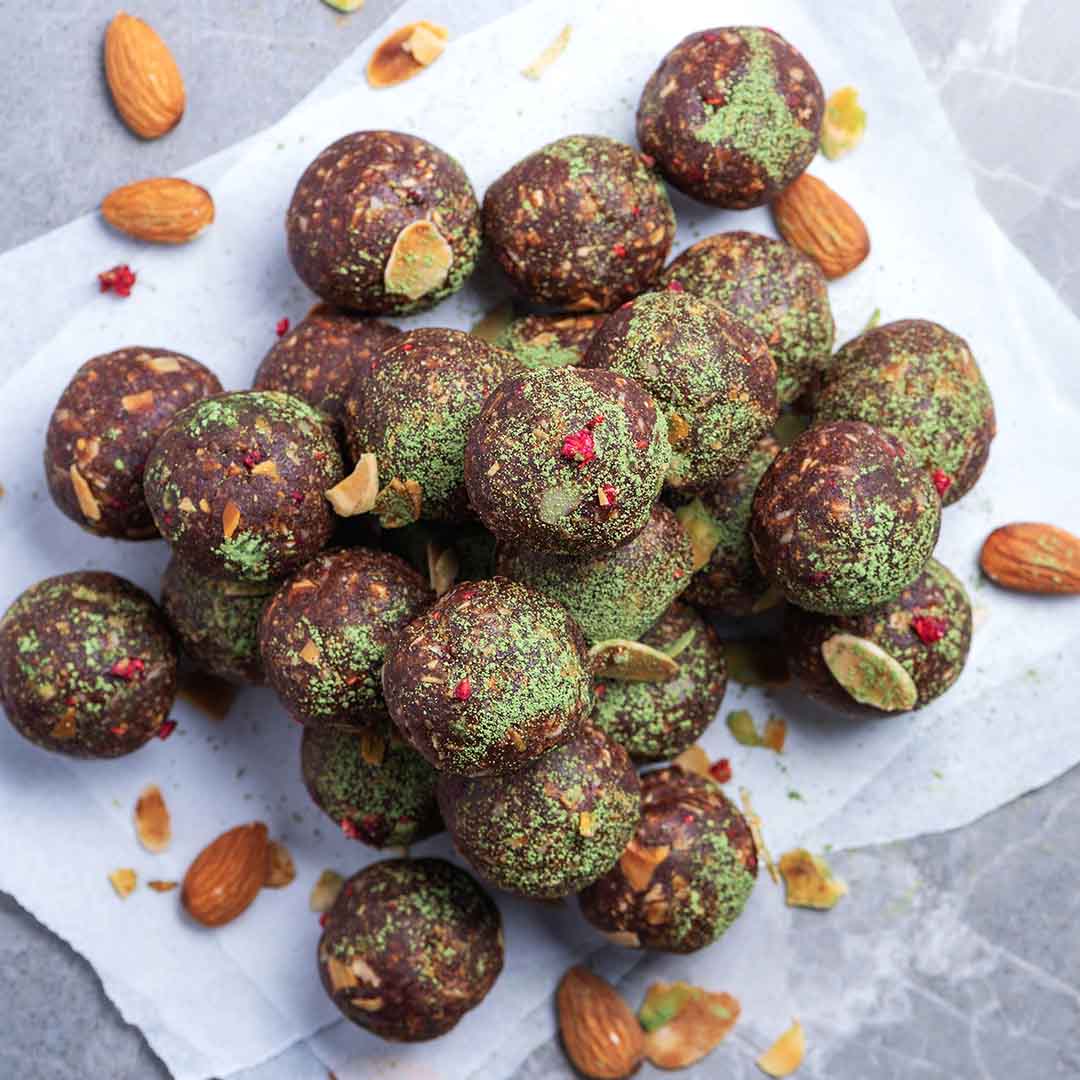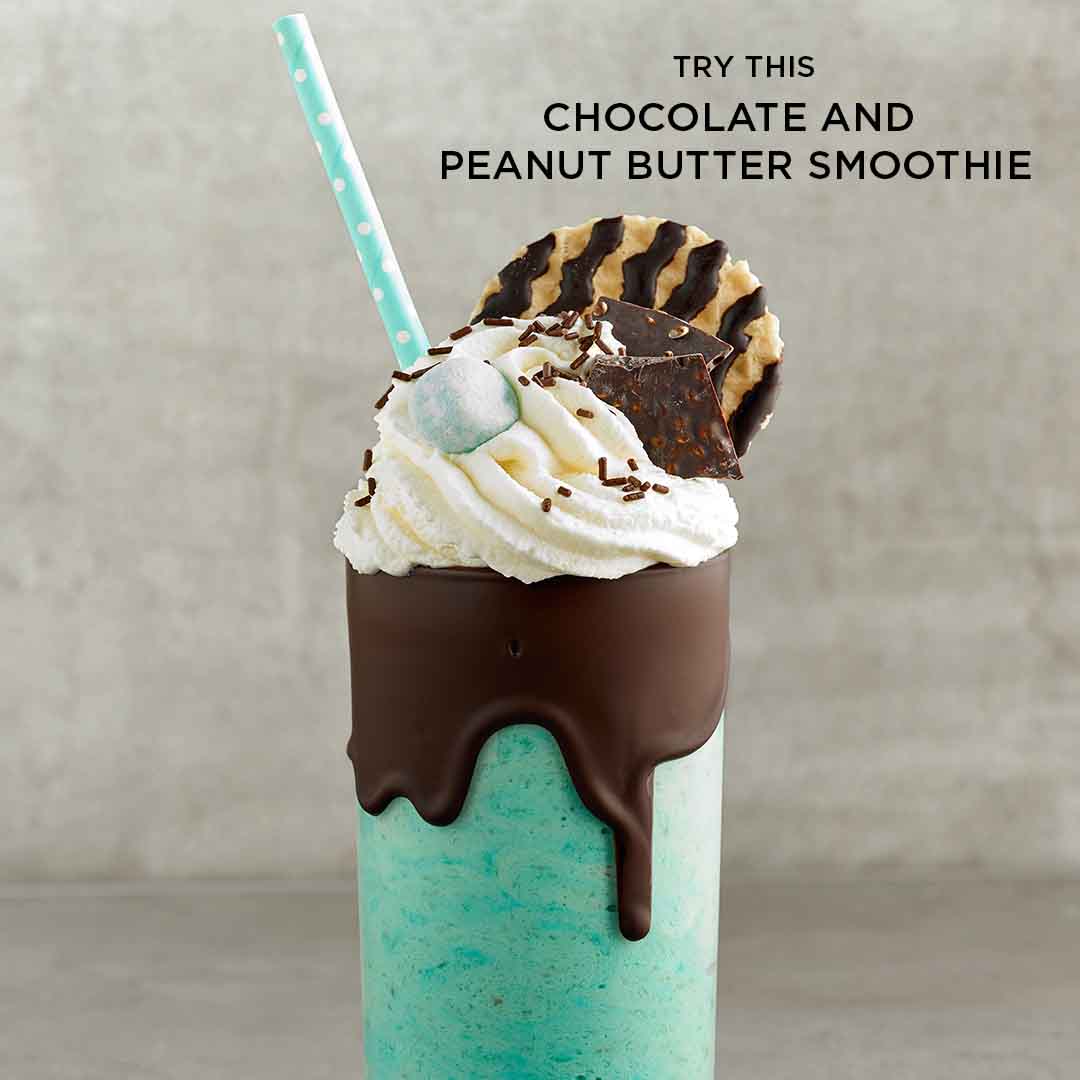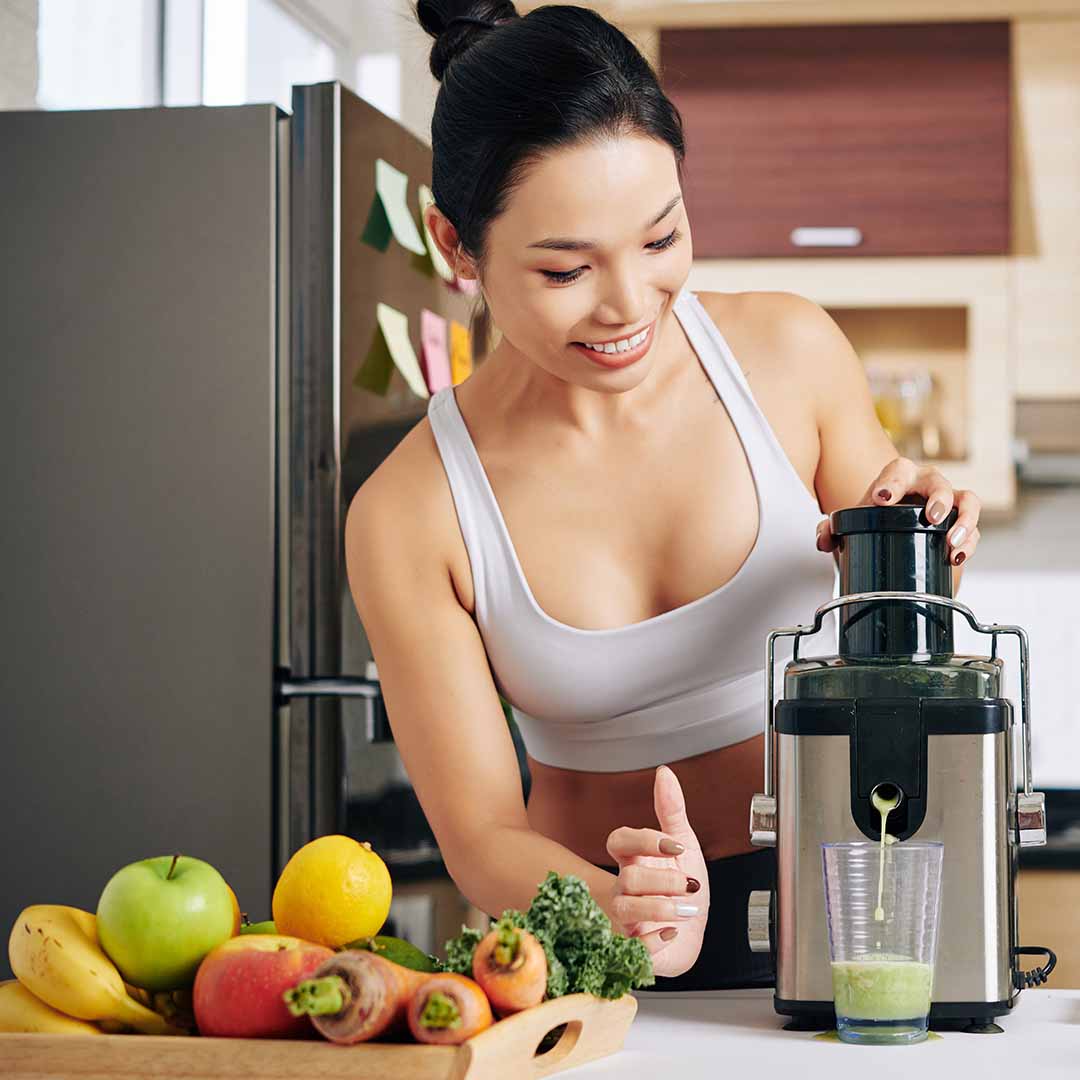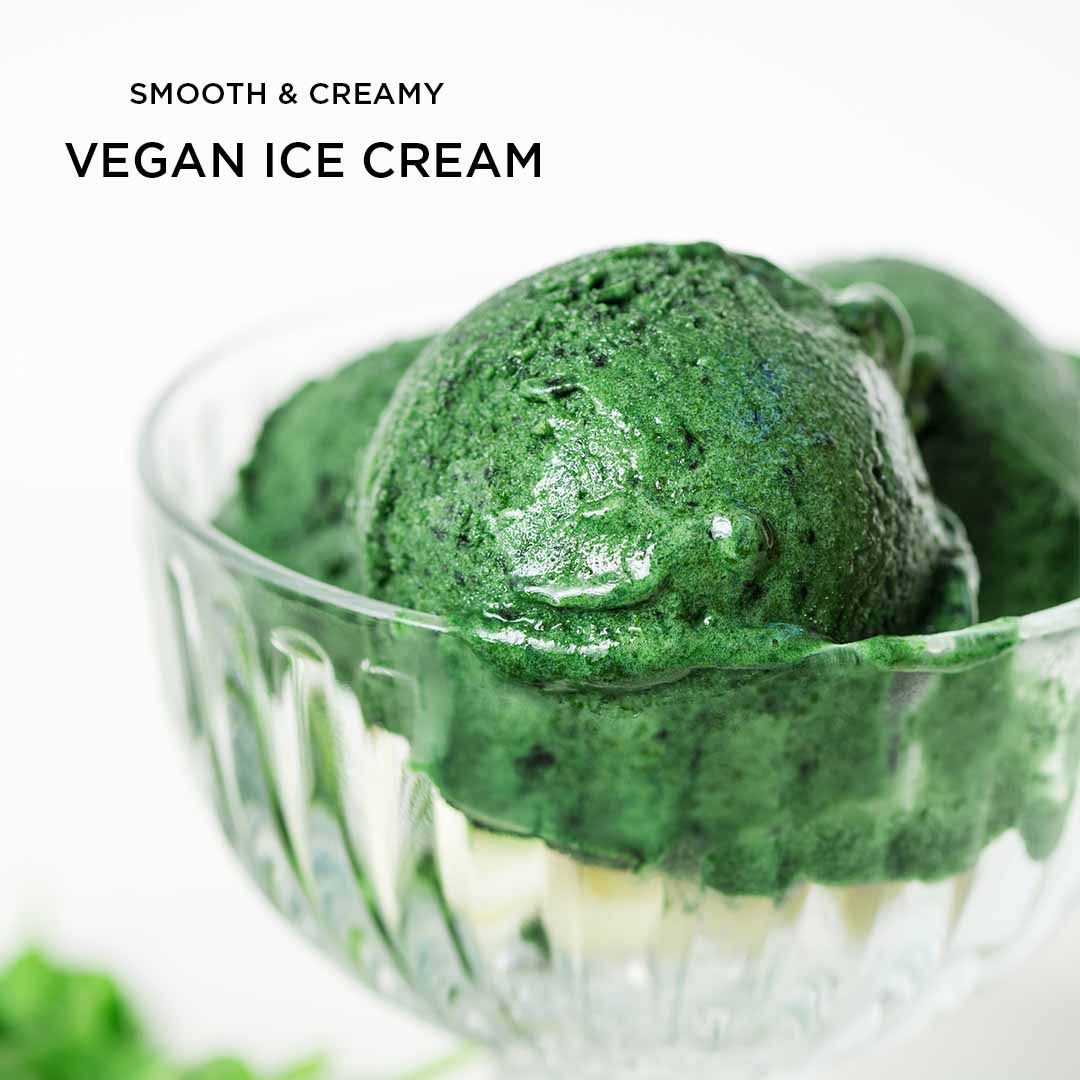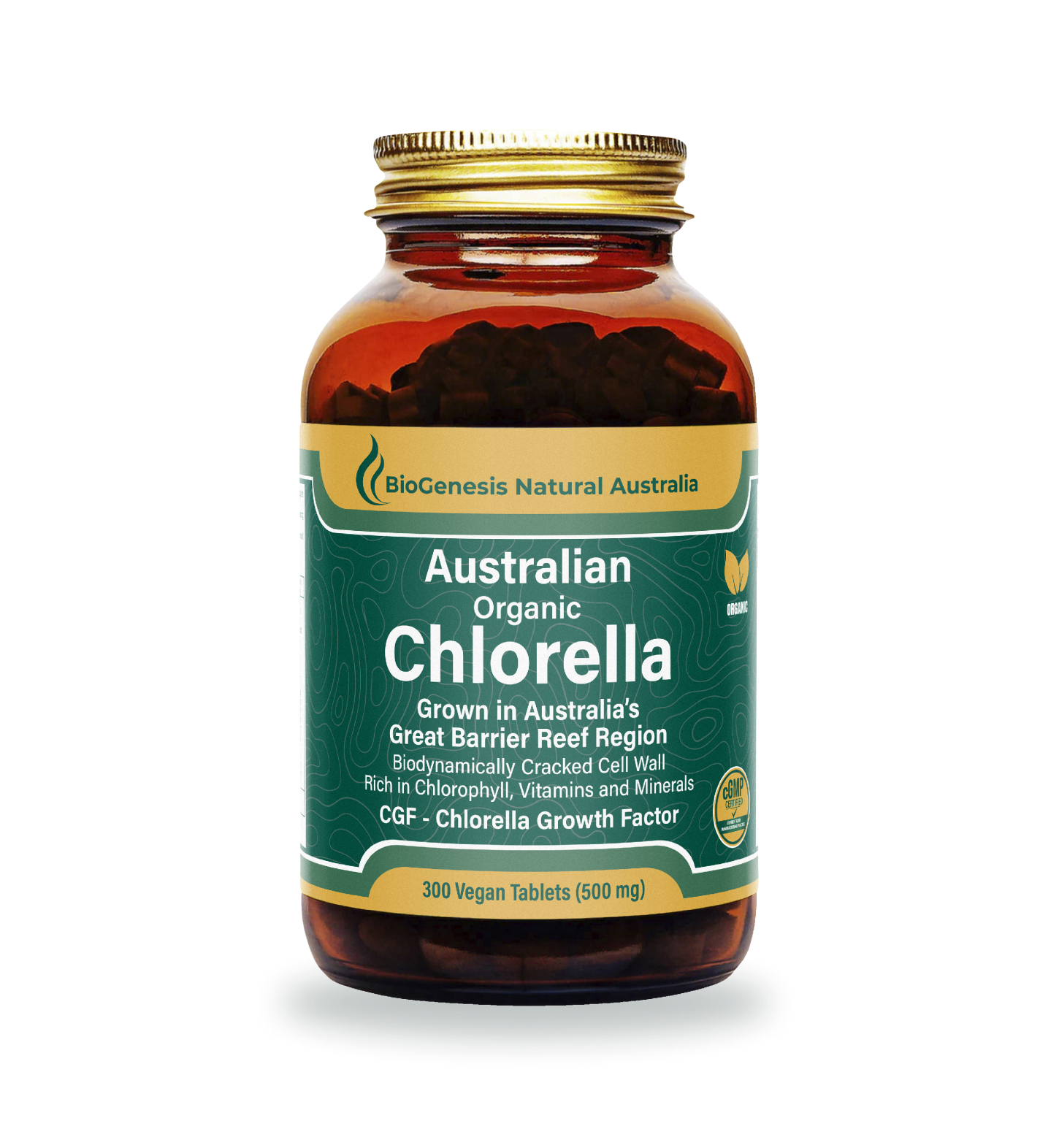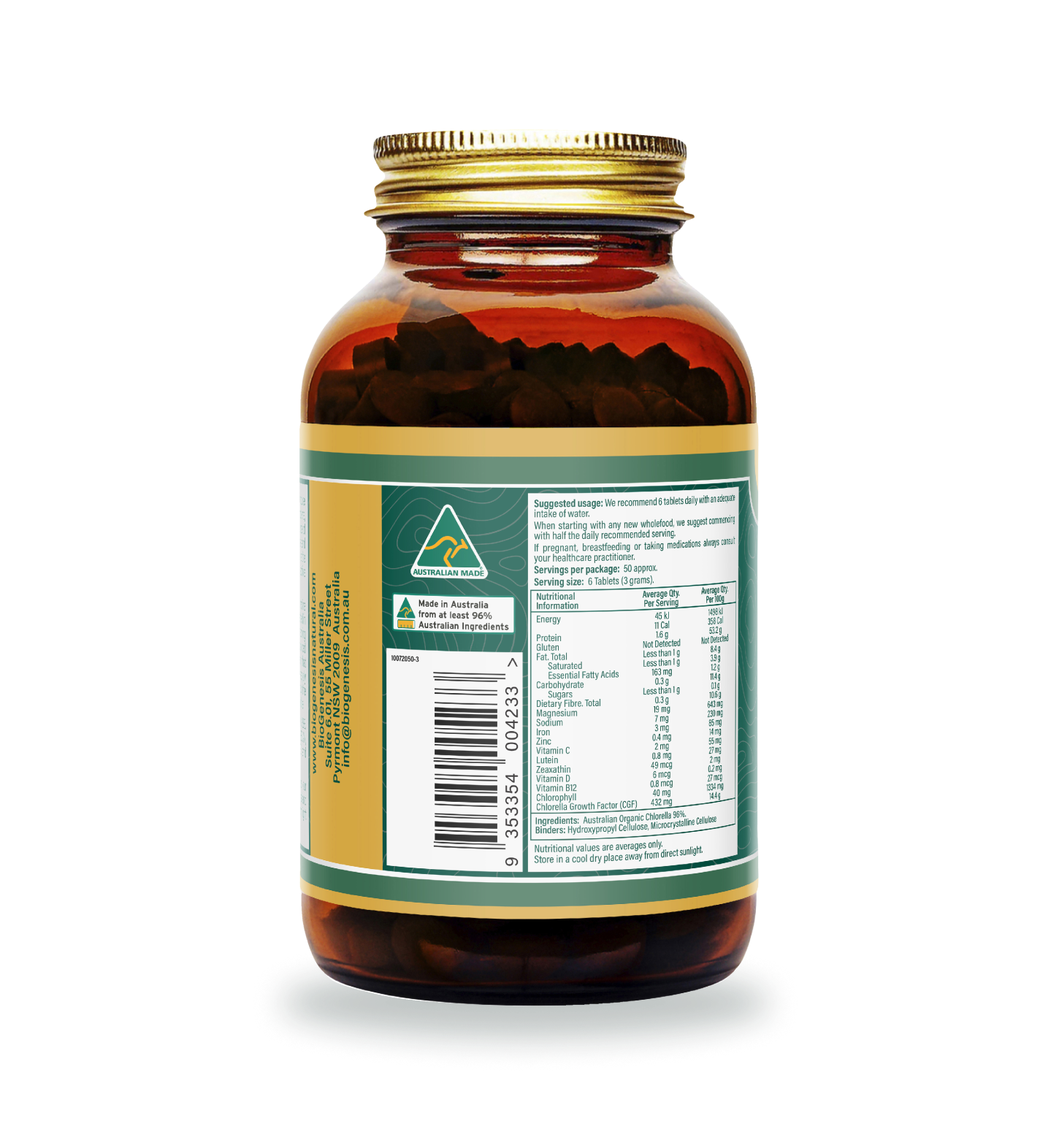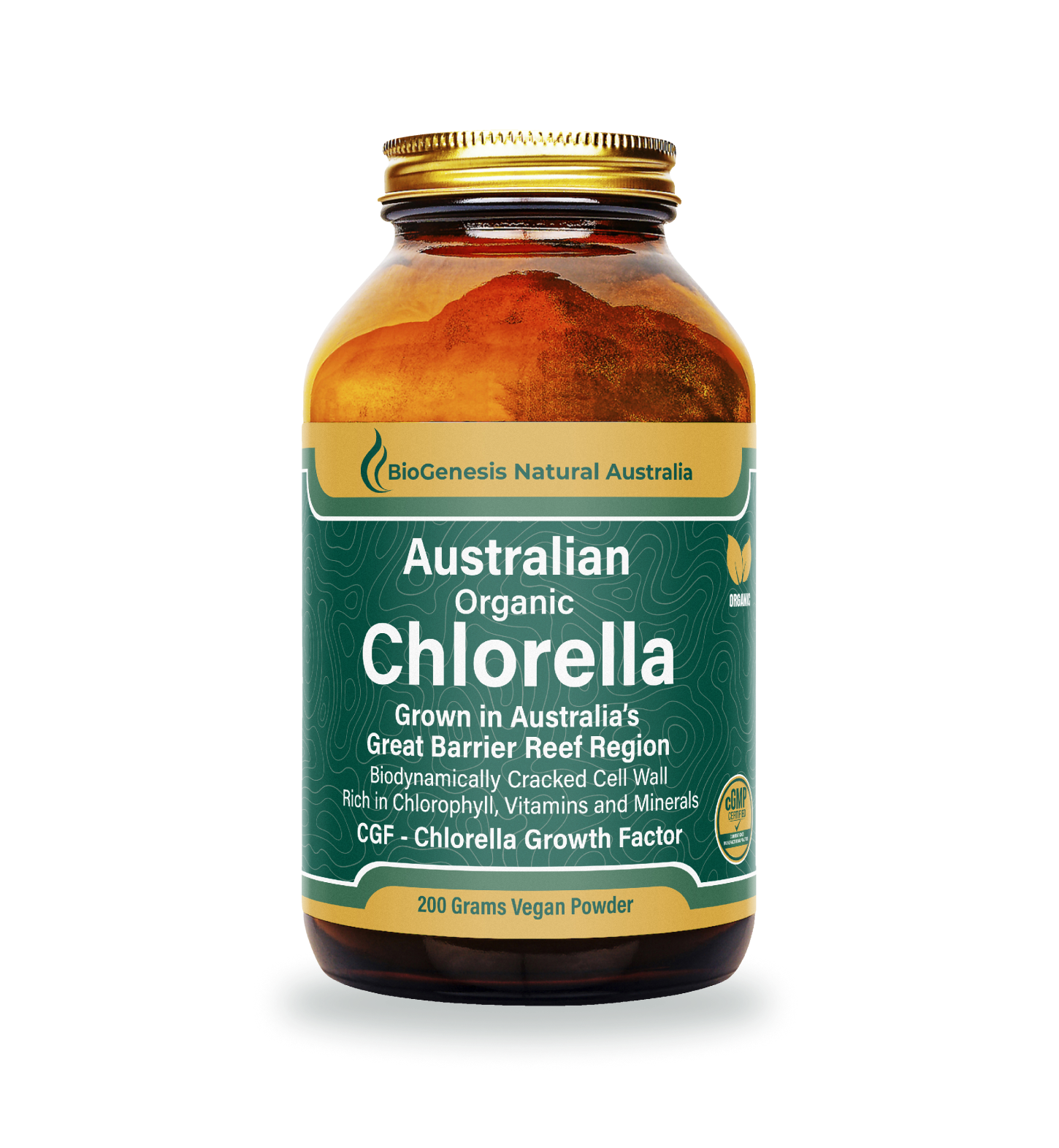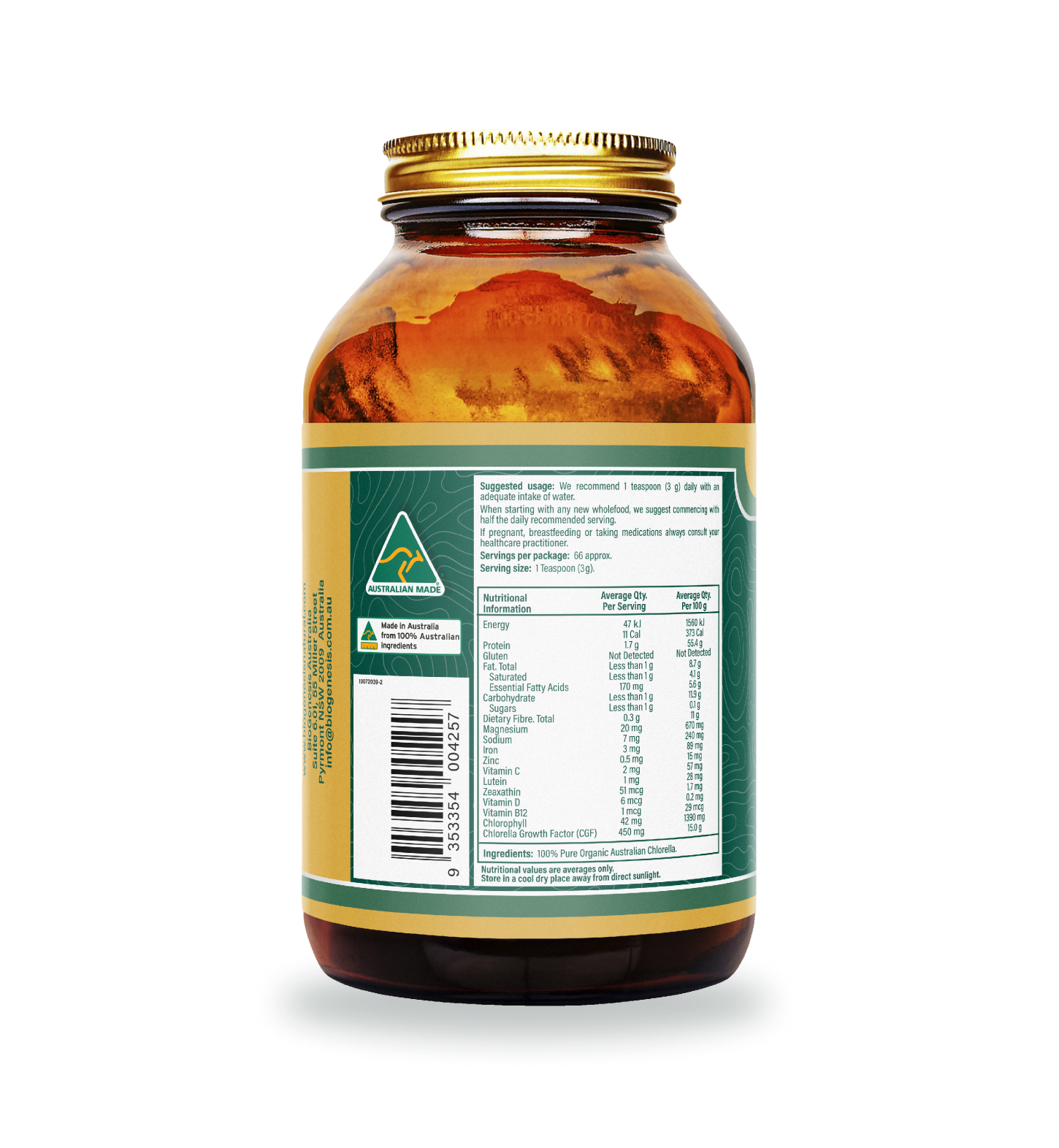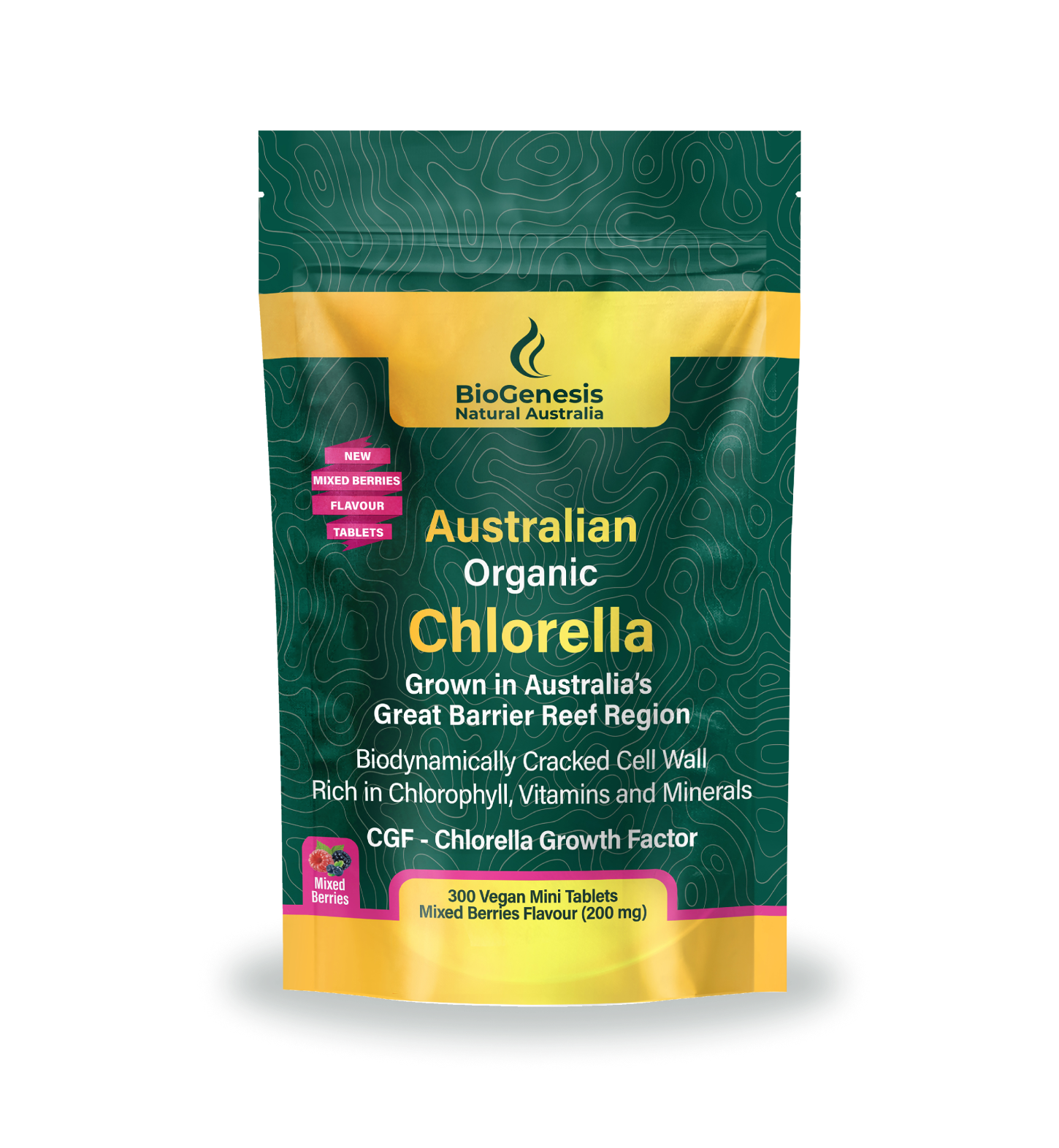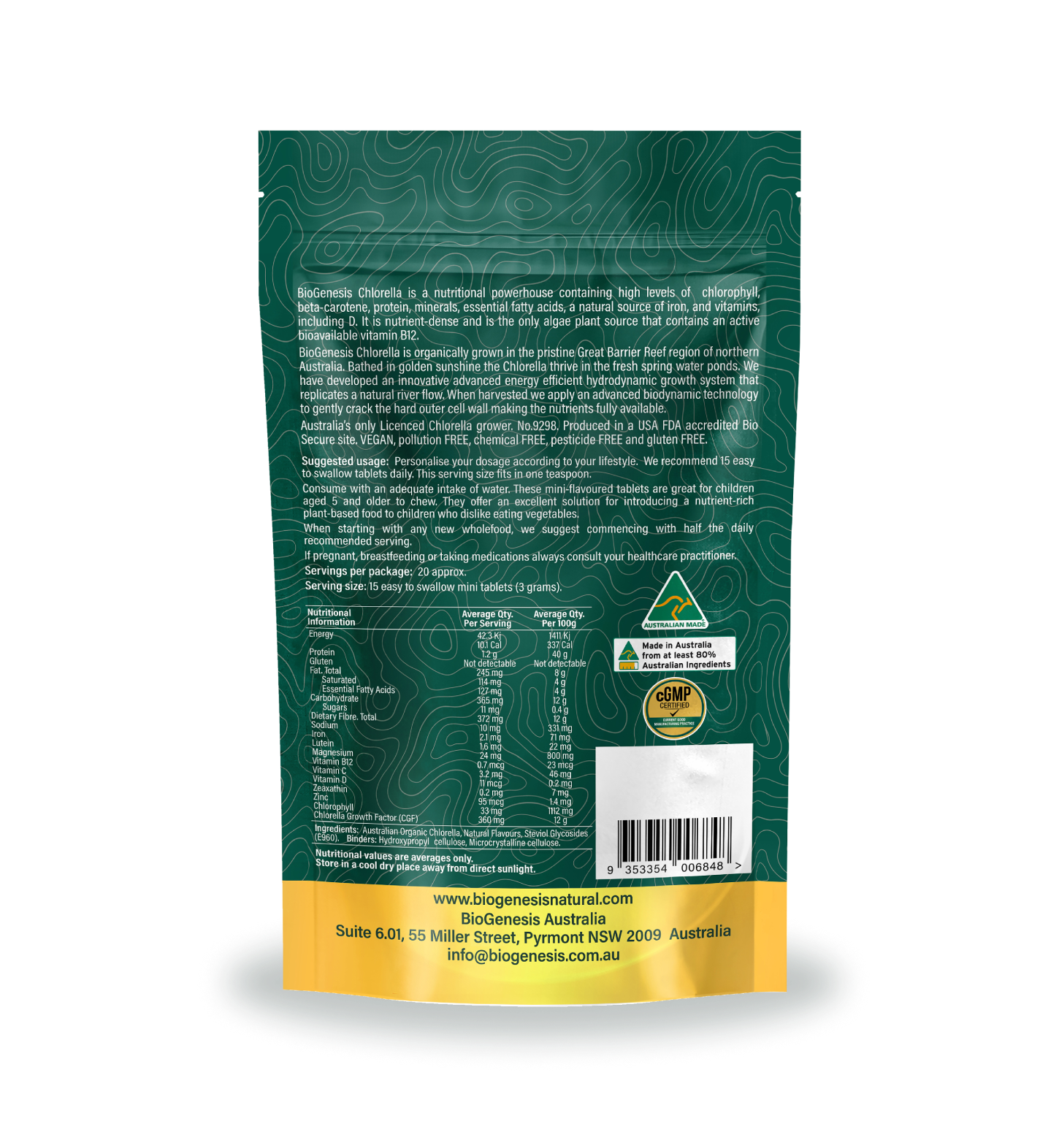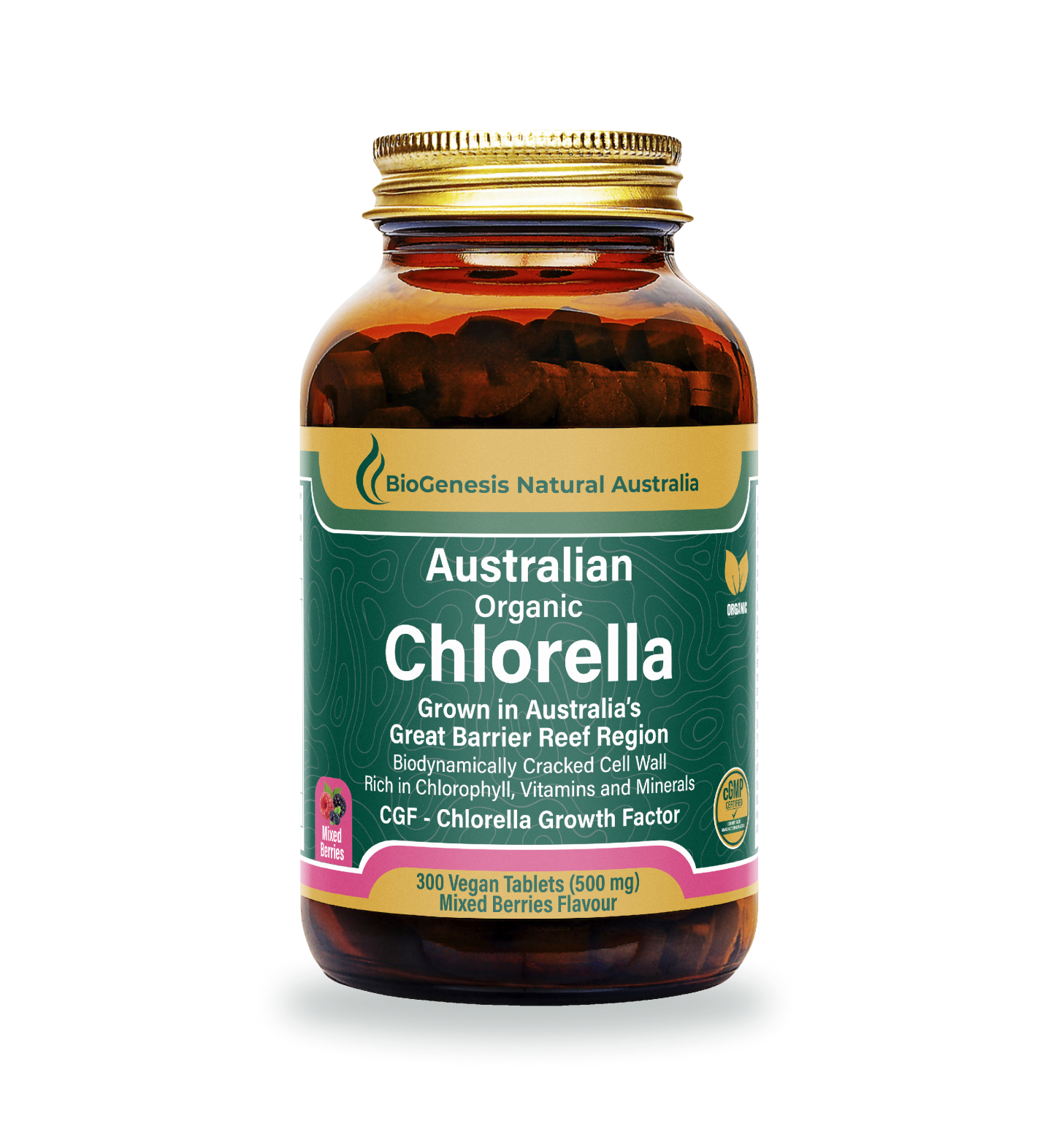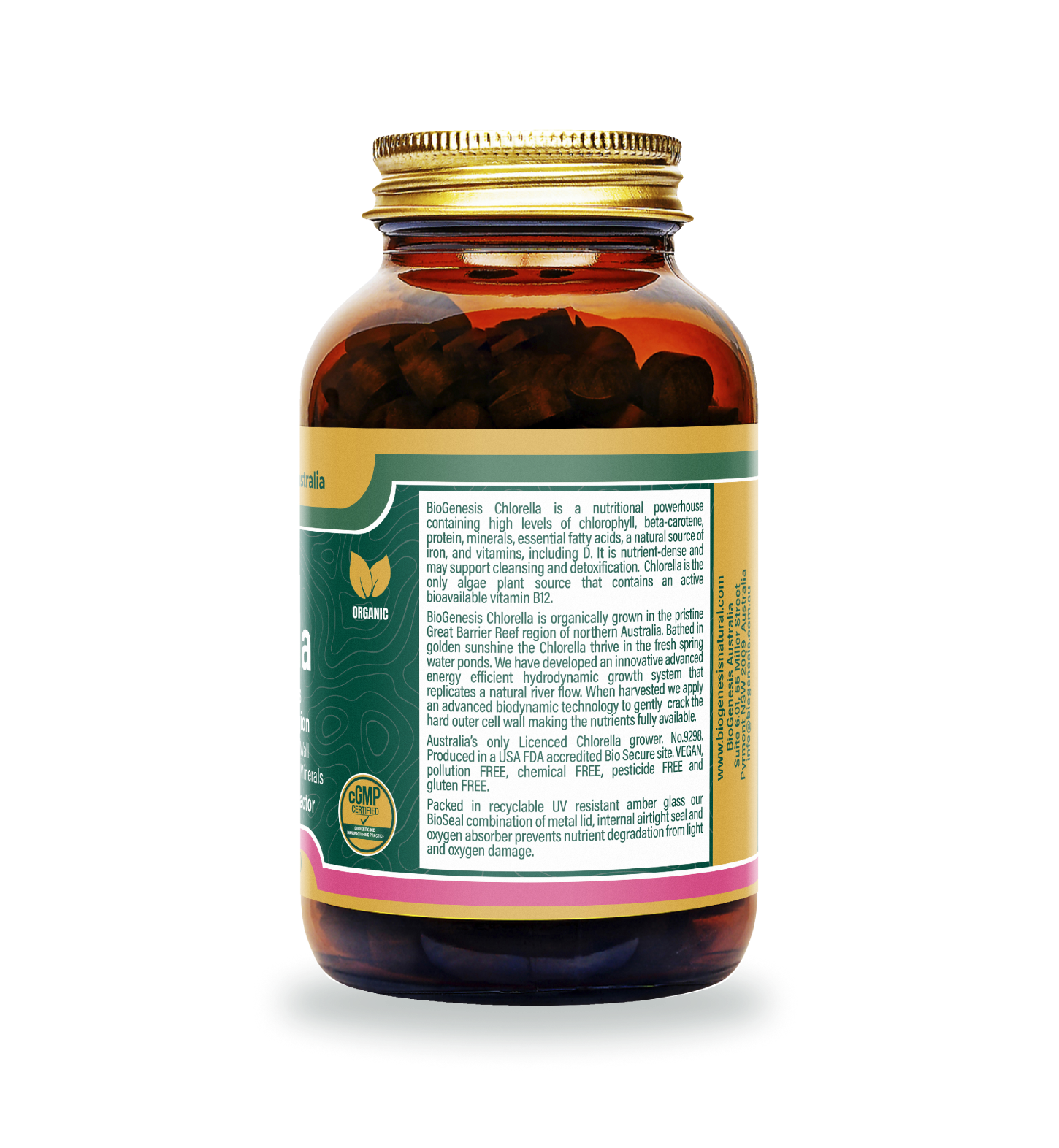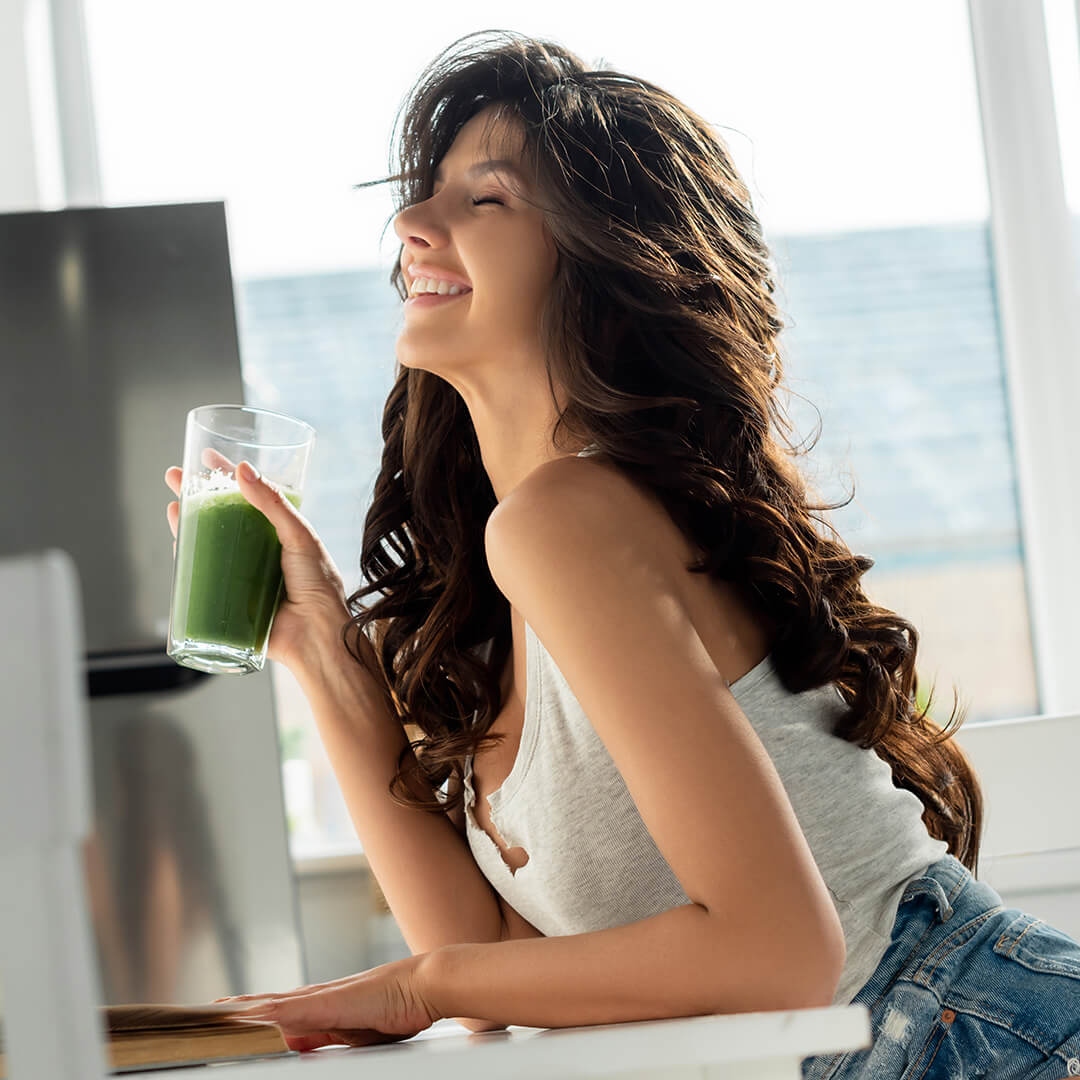
Chlorella: Natural Support for Anaemia or Low Iron
by Colin McGregor
Have you noticed that you may be feeling fatigued more often? Perhaps you are experiencing shortness of breath or lightheadedness? Maybe there are times when experience rapid heartbeats an irregular rhythm. It’s possible that these may be symptoms indicating a health condition called anaemia.
You may have heard of anaemia but may not know exactly what it is. Anaemia is defined as a lower than normal concentration of haemoglobin, or red blood cells, which results in reduced capacity of the blood to carry oxygen. Haemoglobin is the main protein in your red blood cells. If you have anaemia, your haemoglobin level will be low. If the level drops low enough, your tissues or organs may not be getting adequate oxygen needed for them to function properly. Symptoms of anaemia such as fatigue or shortness of breath happen because your organs are becoming oxygen deprived. Unfortunately, anaemia affects more people than most realise. In fact, it is estimated that that one-quarter of the world’s population has some form of anaemia.
The loss of blood that results in anaemia has a variety of causes. It may be due to gastrointestinal issues such as ulcers, hemorrhoids or gastritis. You may have been prescribed non-steroidal anti-inflammatory drugs (NSAIDs) such as aspirin or ibuprofen, which can lead to ulcers or gastritis. Post-surgery can also contribute to blood loss. Women experiencing heavy periods or conditions such as fibroids are at risk of anaemia. In actually fact, there are many possible reasons why a person may become anaemic. Most generally, anaemia is categorised into two main types i.e., iron deficiency anaemia and vitamin B12-deficiency anaemia. The best way to assess if you have anaemia is to have your doctor arrange for a blood test.
The Two Types of Anaemia
Iron deficiency anaemia occurs when the iron levels are too low. It is characterized by small, often pale, red blood cells. According to the Iron Disorders Institute, iron deficiency is the most common nutritional deficiency in the world. Your bone marrow needs iron to make haemoglobin, the part of the red blood cell that takes oxygen to your organs. Without it, the body cannot produce enough haemoglobin to make enough healthy red blood cells.
This type of anaemia is caused by a lack of the mineral iron either due to a lack of iron in your diet or the presence of gastro-intestinal issues. There are 2 types of iron in food, haem and non-haem. Haem iron, found in meat, poultry and seafood, is absorbed more effectively than non-haem iron, which is found in eggs and plant foods. That is why vegans and vegetarians are at greater risk of iron deficiency.(Saunders 2013) Women need more iron to replace the amount lost in blood during menstruation. Until menopause, women need about twice as much iron as men. Pregnancy and breast feeding also use up iron stores in the body.
Vitamin B12-deficiency anaemia, also known as cobalamin deficiency, is a condition that develops when your body can't make enough healthy red blood cells from a lack of vitamin B12. Your body needs vitamin B12 to produce enough healthy red blood cells. Since your body doesn’t make vitamin B12, you have to get it from the foods or from supplements.
Without enough vitamin B12, blood cells do not form properly inside your bone marrow, the sponge-like tissue within your bones. These blood cells die sooner than normal, leading to anaemia. Vitamin B12 is an essential nutrient that supports energy production, DNA synthesis, brain and nervous system function, and red blood cell formation. It helps with heart health by aiding in the breakdown of homocysteine, an amino acid associated with poor cardiovascular health (Group 2013 ) . Vitamin B12 is also a vitally important nutrient during pregnancy.
A B12 deficiency can result in many health issues, some are rather serious. They include loss of energy, tingling, numbness, reduced sensitivity to pain or pressure, blurred vision, abnormal gait, sore tongue, poor memory, confusion, even hallucination and personality changes.
Following a plant-based lifestyle has many benefits. However, one of the challenges of a plant-based diet is maintaining optimal levels of Vitamin B12 since it is typically found in animal products. It is important to note that studies discovered that many vegetarians and vegans have some form of deficiency of B12. Thus, it is imperative to supplement with B12 (Rizzo 2016 ) (Pawlak 2013 ) . A 2021 study in Clinical Nutrition concluded (Bakaloudi 2021 ):
Regarding macronutrients, vegan diets are lower in protein intake compared with all other diet types. Veganism is also associated with low intake of vitamins B2, Niacin (B3), B12, D, iodine, zinc, calcium, potassium, selenium. Vitamin B12 intake among vegans is significantly lower and calcium intake in the majority of vegans was below recommendations.
Chlorella - A Natural Source Vitamin B12 and Iron
When searching for a source that can help boost your levels of iron and B12, look no further than the superfood, chlorella. This unicellular green algae is recognised as powerhouse for health. It is one of the most nutrient-dense foods on the planet. It is not an exaggeration to say that chlorella is nature’s own complete multivitamin-multimineral because it contains most of the essential nutrients needed to sustain life.
Its nutrient profile includes vitamins E, C and K, B-complex, biotin, zinc, calcium, magnesium, selenium, potassium, phosphorus and omega-3 essential fatty acid. In addition, it has more beta-carotene than carrots and more than five times more chlorophyll than wheatgrass. Chlorella also contains more than 50 percent of bio-available protein and all the essential amino acids. It is one of the few foods that naturally contain vitamin-D.
Chlorella is a great wholefood for helping to prevent anaemia. Chlorella is truly an outstanding plant-based food source of methyl-cobalamine, the most absorbable form of Vitamin B12. (Bit 2020 ) Methylcobalamin is a natural, active form of vitamin B12 and is the principal circulating form of B12 that can enter into the bloodstream quickly. It is also the most bioavailable, as it requires little to no conversion and crosses easily through every aspect of B12’s metabolic pathways. Therefore, it is the form that the body can effectively utilise.
It is important to emphasise that only chlorella has the methylcobalamin form of B12. It is widely believed that the blue-green algae, spirulina, is also a good source of B12. However, research has proven that this is not the case. Spirulina has an inactive or pseudo form of B12, which is not the real thing. This is known as a vitamin B12 analogue. Not only is this inactive form unable to raise B12 levels, but what’s even more troubling is the fact it actually blocks the body’s ability to absorb B12 efficiently. Therefore, vegans and vegetarians should incorporate chlorella as a proven source of absorbable B12 rather than spirulina. (Watanabe 2007 )
Chlorella’s nutrient profile also includes iron. In fact, the iron content of chlorella is particularly impressive and can provide up to 40 per cent of your daily requirements. Unfortunately, most of the oral forms of iron supplements are difficult for the body to absorb. They also have uncomfortable side effects, such as, constipation, stomach pain, bloating, nausea, and vomiting.
Incorporating chlorella into your daily nutritional regimen, will provide a form of plant-based iron that is easily absorbed and assimilated by the body. Perhaps even more importantly, chlorella contains vitamin C, an important nutrient that is needed to help the body properly absorb and utilise iron in the blood (Jacobs 2009 ).
Getting The Best Chlorella for Your B12 and Iron Needs
Chlorella is able to raise B12 and iron levels when you consume a high quality source. The purity and potency of the chlorella as well as the proprietary processing and packaging method, not only determines the highest nutrient profile but also is required to maintain its potency.
Biogenesis is a company devoted to bringing you not only the purest but also the most nutrient dense, organic chlorella for your wellbeing. Biogenesis has been recognised for growing the highest quality, organic chlorella. It is 100 percent Australian owned and operated. In fact, it is the only ‘Australian Made, Australian Grown’ licensed producer of chlorella. From its farm in tropical Queensland, right through to packing and distribution, its products are grown and processed in Australia to the highest quality standard. Unlike many other countries that grow chlorella, the pristine water and abundant sunlight of Biogenesis’ tropical Queensland farm, insures the purest and highest quality algae product available any where in the world.
The Biogenesis Biodynamic System utilises a combination of vacuum and ultrasonic technology that enables the nutrients of the cell to be made available without the risk of oxidation or nutritional losses. This means that Biogenesis is able to deliver its powerhouse of all its nutrients efficiently to every cell in your body.
Chlorella is a truly a unique nutritional product. It is renown as a superfood with a comprehensive nutritional profile to support your health and wellbeing. If you are concerned about being anaemic, then chlorella can certainly be your source of nutrition to help restore healthy red blood cells and iron. This is especially true if you are a vegetarian or vegan. By adding Chlorella to your daily nutritional regimen, in addition to a balanced diet, you’ll be providing your body with a readily available form of active vitamin B12 and iron, along with all the other key nutrients. Chlorella is delivered to you by Nature (and Biogenesis) to guarantee you live your most vital and healthy life.
Sherrill Sellman,ND, is a Naturopathic Doctor, best-selling author, women’s health expert, contributor to health magazine worldwide, lecturer and host of two weekly podcasts. She can be found at www.drsherrillsellman.com and @sherrillsellman
- Rizzo G, Laganà AS, Rapisarda AM, La Ferrera GM, Buscema M, Rossetti P, Nigro A, Muscia V, Valenti G, Sapia F, Sarpietro G, Zigarelli M, Vitale SG. Vitamin B12 among Vegetarians: Status, Assessment and Supplementation. Nutrients. 2016 Nov 29;8(12):767. doi: 10.3390/nu8120767. PMID: 27916823; PMCID: PMC5188422. https://pubmed.ncbi.nlm.nih.gov/27916823/
- Pawlak R, Parrott SJ, Raj S, Cullum-Dugan D, Lucus D. How prevalent is vitamin B(12) deficiency among vegetarians? Nutr Rev. 2013 Feb;71(2):110-7. doi: 10.1111/nure.12001. Epub 2013 Jan 2. PMID: 23356638. https://pubmed.ncbi.nlm.nih.gov/23356638/
- Dimitra Rafailia Bakaloudi, Afton Halloran, Holly L. Rippin, Artemis Christina Oikonomidou, Theodoros I. Dardavesis, Julianne Williams, Kremlin Wickramasinghe, Joao Breda, Michail Chourdakis,
Intake and adequacy of the vegan diet. A systematic review of the evidence, Clinical Nutrition, Volume 40, Issue 5, 2021, Pages 3503-3521,
ISSN 0261-5614, https://www.sciencedirect.com/science/article/pii/S0261561420306567 - https://explore.globalhealing.com/10-best-foods-for-heart-health/
- Bito T, Okumura E, Fujishima M, Watanabe F. Potential of Chlorella as a Dietary Supplement to Promote Human Health. Nutrients. 2020 Aug 20;12(9):2524. doi: 10.3390/nu12092524. PMID: 32825362; PMCID: PMC7551956. https://pubmed.ncbi.nlm.nih.gov/32825362
- Watanabe F. Vitamin B12 sources and bioavailability. Exp Biol Med (Maywood). 2007 Nov;232(10):1266-74. doi: 10.3181/0703-MR-67. PMID: 17959839. https://pubmed.ncbi.nlm.nih.gov/17959839/
- https://www.healthgrades.com/right-care/blood-conditions/6-side-effects-of-oral-iron-supplements
-
Dagnelie PC, van Staveren WA, van den Berg H. Vitamin B-12 from algae appears not to be bioavailable. Am J Clin Nutr. 1991 Mar;53(3):695-7. doi: 10.1093/ajcn/53.3.695. Erratum in: Am J Clin Nutr 1991 Apr;53(4):988. PMID: 2000824.https://pubmed.ncbi.nlm.nih.gov/2000824/



